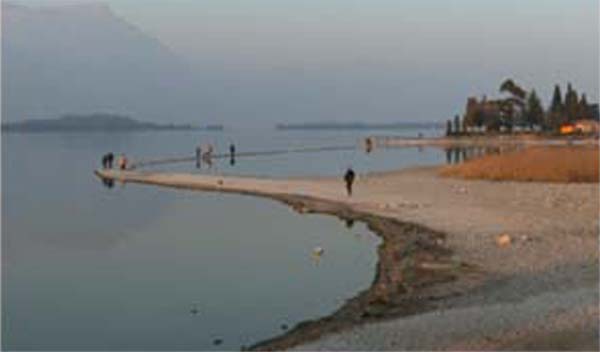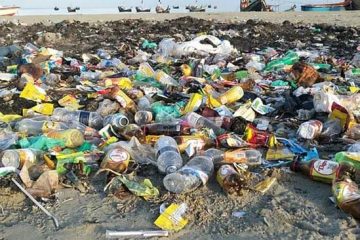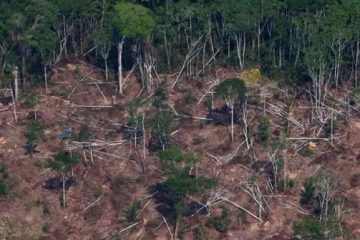News Desk : dhakamirror.com
More than half of the world’s largest lakes and reservoirs have lost significant amounts of water over the last three decades, according to a new study, which pins the blame largely on climate change, intensifying concerns about water for agriculture, hydropower and human consumption.
According to a team of international researchers, some of the world’s most significant freshwater sources -from the Caspian Sea between Europe and Asia to South America’s Lake Titicaca have been losing water at a cumulative rate of roughly 22 gigatonnes per year for almost three decades.
That is about 17 times the volume of the largest reservoir in the United States – Lake Mead.
The study published in the journal Science found unsustainable human use dried up lakes, such as the Aral Sea in Central Asia and the Dead Sea in the Middle East, while lakes in Afghanistan, Egypt and Mongolia were hit by rising temperatures, which can increase water loss to the atmosphere.
Water levels rose in a quarter of the lakes too, often as a result of dam construction in remote areas such as the Inner Tibetan Plateau.
Natural lakes and dams store about 87 percent of the Earth’s freshwater, although they cover just 3 percent of the planet’s surface. The report was based on satellite image data collected between 1992 and 2020.
Fangfang Yao, a surface hydrologist at the University of Virginia who led the study, said 56 percent of the decline in natural lakes was driven by climate warming and human consumption, with warming “the larger share of that”.
Climate scientists generally think that the world’s arid areas will become drier under climate change, and wet areas will get wetter, but the study found significant water loss even in humid regions.
“This should not be overlooked,” Yao said.
Scientists assessed almost 2,000 large lakes using satellite measurements combined with climate and hydrological models. They found that unsustainable human use, changes in rainfall and run-off, sedimentation, and rising temperatures have driven lake levels down globally, with 53 percent of lakes showing a decline from 1992 to 2020.
Spain recently reported that reservoirs in the northeastern region of Catalonia are about 26 percent full after months of drought. In comparison, that figure was 58 percent full in 2022.
In Italy, unusually low water levels were recently recorded for Lake Garda compared with the same period in 2022. The water level was 50 percent lower compared with the previous year.
Scientists and campaigners have long said it is necessary to prevent global warming beyond 1.5 degrees Celsius (2.7 degrees Fahrenheit) to avoid the most catastrophic consequences of climate change. The world is currently warming at a rate of approximately 1.1C (1.9F).
– Input from News Agencies was used in this article.



